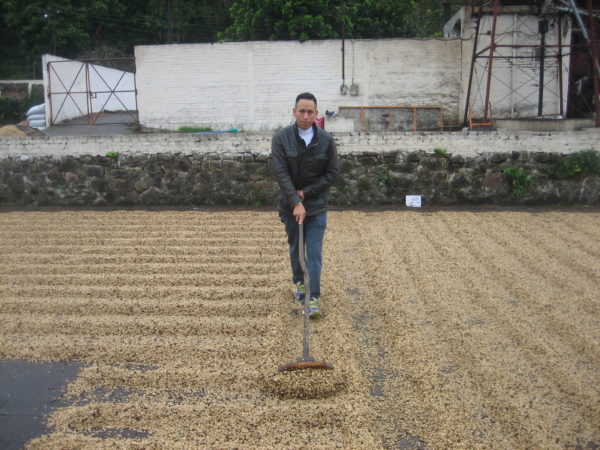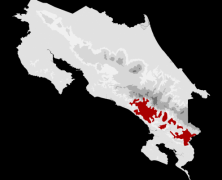Starbucks acquired Story of Althacia Manor in Costa Rica Coffee Bean planting and processing
The Chac ó n Solano family has grown coffee in Las Lajas for more than 80 years and has lasted for three generations. This generation, led by Oscar and Francisca Chac ó n, began organic farming about 30 years ago and became one of the few farms in Costa Rica to receive official organic certification in 2000. The family strives not only to farm in an environmentally and socially responsible manner, but also to produce the highest quality coffee. They were innovative in processing and were one of Costa Rica's early innovators in improving different honey and natural processing methods.

Las Lajas is located at the foot of the Poa á s volcano from 1300 to 1500m above sea level and is located in the main coffee country in the Sabanilla de Alajuela region of the Central Valley of Costa Rica. This lush, fertile area is characterized by about 3000 millimeters of rainfall on 150 days of the year. The farm produces 100% Arabica coffee, mainly Caturra and Catua í varieties, which grow in the shade of local trees. Organic composting is produced in the field using earthworm farming (worm composting), which is completely free of chemicals and agricultural toxins.
The harvest begins in December and lasts until February. Cherries are carefully selected to ensure that only fully ripe and high-quality cherries are collected. The cherries are then processed in the farm's state-of-the-art micro-factory, where they are pulped with an ecological "dry" pulper, saving thousands of liters of water in the process. Then treat the beans according to the method of complete washing (see below). All the remaining coffee pulp is recycled and used as farm fertilizer.
The coffee is processed according to full washing at the Las Lajas micro-mill of the Chac ó n Solano family, which processes coffee from the surrounding area in addition to all Las Lajas coffee. In fact, in 2008, the factory contributed to Francisca Cubillo Salas winning the Excellence Cup!
Wash the coffee beans thoroughly, dry them on an African bed (elevated screen) or terrace for about 10 days, then transfer them to multiple tunnels to dry until the coffee reaches 11.5% humidity. The beans are placed on parchment before dry grinding and grading with a gravity separator. All the remaining coffee pulp is recycled and used as farm fertilizer.

It is because of its unique coffee flavor that Starbucks has bought a coffee farm in Costa Rica and has tested the best way to grow it at Starbucks' global R & D facilities and work farms. It will also open to its Hacienda Alsacia Visitor Center at the Coffee Farm in Costa Rica on March 7. The farm, located on the slopes of the Boaz volcano, will help develop new technologies for soil management processes, which will eventually affect the taste of coffee offered by stores.
Important Notice :
前街咖啡 FrontStreet Coffee has moved to new addredd:
FrontStreet Coffee Address: 315,Donghua East Road,GuangZhou
Tel:020 38364473
- Prev

Five El Salvador Coffee Brands Starbucks El Salvador Coffee Bean Packaging significance Flavor description
El Salvador is a relatively small country located in Central America. When it comes to Central American coffee, there is no lack of competition. Honduras, Guatemala, Nicaragua and Costa Rica all produce more coffee than El Salvador and all enjoy a high reputation. Although it may not be as famous in the world as coffee from some neighboring countries, coffee in El Salvador is also because of its excellent quality.
- Next

Story of Coffee planting in Brenka region of Costa Rica Stonehenge Manor anaerobic heavy honey treatment of flavor mouth
Blueberries from Stonehenge Manor in Costa Rica have always been one of my favorite beans. Blueberry fudge with the fresh and special flavor of mint in the end of the fermented wine is what I think is a must for summer coffee beans. After all, which part of Stonehenge is in Costa Rica? Why does he have such a clear flavor? Today is big.
Related
- Detailed explanation of Jadeite planting Land in Panamanian Jadeite Manor introduction to the grading system of Jadeite competitive bidding, Red bid, Green bid and Rose Summer
- Story of Coffee planting in Brenka region of Costa Rica Stonehenge Manor anaerobic heavy honey treatment of flavor mouth
- What's on the barrel of Blue Mountain Coffee beans?
- Can American coffee also pull flowers? How to use hot American style to pull out a good-looking pattern?
- Can you make a cold extract with coffee beans? What is the right proportion for cold-extracted coffee formula?
- Indonesian PWN Gold Mandrine Coffee Origin Features Flavor How to Chong? Mandolin coffee is American.
- A brief introduction to the flavor characteristics of Brazilian yellow bourbon coffee beans
- What is the effect of different water quality on the flavor of cold-extracted coffee? What kind of water is best for brewing coffee?
- Why do you think of Rose Summer whenever you mention Panamanian coffee?
- Introduction to the characteristics of authentic blue mountain coffee bean producing areas? What is the CIB Coffee Authority in Jamaica?

